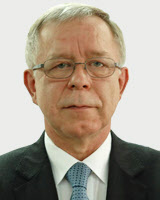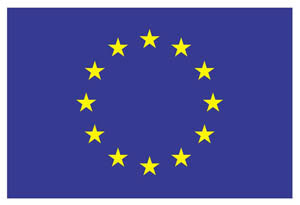고정 헤더 영역
상세 컨텐츠
본문
세계기후변화 협약을 위한 한국의 역할
입력 : 2015.06.09 04:00

- ▲ 토마쉬 코즐로프스키 주한 유럽연합 대사
12월 파리 기후변화 당사국 총회가 다가옴에 따라 우리는 어떤 협약을 이루어낼 것인지에 대해 살펴보기 시작했다. 모든 국가들은 기후변화 문제 해결을 위해 기여할 수 있는 목표를 정해야 한다. 이 온실가스 감축을 위한 자발적 기여방안(INDCs, Intended Nationally Determined Contributions)은 우리가 이 시대의 결정적 이슈인 기후변화 문제를 성공적으로 해결할 수 있을지 여부를 결정할 것이다. 한국도 온실가스 감축을 위한 자발적 기여방안을 곧 발표할 예정이며, 이것이 한국의 글로벌 기후변화 협약에 대한 기여가 될 수 있다.
전 세계는 한국의 온실가스 감축을 위한 자발적 기여방안에 주목하고 있다. 지난 5월 반기문 유엔 사무총장이 방한해 강조한 것 처럼 한국은 많은 국가들이 따르기를 지향한 녹색성장의 모델로 여겨져왔다. 예를 들어 한국은 2020년 국가 온실가스 감축 목표를 달성하기 위해 국가 차원의 배출권 거래제를 최초로 도입한 국가 중 하나이며, 글로벌녹색성장기구(GGGI, Global Green Growth Institute)와 녹색기후기금(GCF, Green Climate Fund)을 유치한 국가다. 한국은 동시에 세계 7위의 탄소 배출국으로 OECD 국가들 가운데 배출량 증가가 가장 빠른 국가 중 하나다.
전 세계는 인구당 GDP 3만 달러로 14위 경제 대국인 한국이 전 세계 탄소배출을 감축할 수 있도록 그 역할을 다 해줄 것을 기대하고 있다.
유럽연합은 이미 2030년까지 최소 40%의 탄소배출을 절감할 것을 약속했다. 우리의 목표는 야심차며 달성하기 어려운 것일 수도 있지만 글로벌 기후변화 문제를 해결하기 위해 기여한다는 모두의 약속이 필요하다. 미국의 경우 2025년까지 26%를 감축할 것을 약속했으며, 일본과 중국도 조만간 온실가스 감축을 위한 자발적 기여 방안을 발표할 것으로 보인다.
탄소배출 감축 목표를 이해하고 비교하는 것이 어려울 수도 있다. 모든 국가들은 다른 감축 기준치를 사용하고 다른 목표 연도를 가지고 있다. 그렇지만 전 세계가 지구 온난화를 2도 이내로 억제하기 위한 목표를 달성할 수 있도록 모든 국가들이 조속히 앞으로 나설 수 있도록 장려해야 할 것이다. 배출을 감축하는 것이 국가 경제와 경쟁력에 부정적인 영향을 미칠 수 있다는 주장도 있다. 유럽 지역의 국가들과 산업계 역시 우리의 온실가스 감축을 위한 자발적 기여 방안을 정할 때 비슷한 우려를 다루어야 했다.
하지만 배출 감축에 있어 단기적 문제들은 극복할 수 있지만 불안정한 기후를 해결하는 문제는 대응하기 힘든 문제다. 또 전 세계적으로 저탄소로의 이행은 저탄소 제품과 서비스를 위한 새로운 시장의 형성 등 상당한 경제적 기회를 가져다 줄 것이다. 우리는 미래지향적인 기업이라면 감축 목표와 탄소 가격이 제공하는 확실성을 원할 것이라는 사실을 알고 있다.
우리는 또 장기적으로는 높은 탄소배출을 유지하는 것보다 탄소배출을 감축하는 것이 비용을 절감하는 방안이라는 것을 알고 있다. 신기후 경제보고서를 비롯한 최근 경제분석 자료들에 따르면 저탄소 경제를 이루는 것이 세계적 번영을 높이고 사회 전체적으로 깨끗한 공기와 건강한 삶을 통해 더 많은 가치를 만들어낼 수 있다고 한다.
유럽연합 국가들만이 인류의 장기적인 번영을 위해 안정적인 기후가 중요하다는 것을 인지하고 있는 것은 아니다. 가장 낙후되어 있는 저개발국가들이 온실가스 감축을 위한 자발적 기여 방안을 발표하거나 준비하는 등 전 세계적으로 더욱 많은 사람들이 기후변화를 막기 위한 행동을 촉구하고 있다. 경제의 상당 부분을 화석 연료에 의존하고 있는 사우디아라비아와 같은 국가 조차도 태양과 풍력에너지의 글로벌 파워로 거듭나겠다는 계획을 세우고 있다. 또 전 세계의 정신적 종교적 지도자들도 기후변화 해결을 위한 행동에 나설 것을 호소하고 있다.
물론 일부 국가들이 낮은 온실가스 감축을 위한 자발적 기여 방안을 발표한다고 즉각적으로 기후 위기에 직면하지는 않을 것이다. 그렇지만 우리는 향후 몇 십년 간 배출 수준을 변경할 수 없도록 결정을 내리고, 너무 늦기 전에 기후변화 해결을 위한 행동에 나서야 한다. 국제사회에서 녹색성장을 향한 노력을 통해 존경 받고 있는 한국과 같은 국가들이 진지하고 야심찬 배출감축 공약을 이루는 것이 중요하다.
우리는 한국이 전 세계의 번영을 위한 안정적인 기후를 만들어내는 데 역할을 할 것으로 기대하고 있다. 한국은 이미 착수하고 있는 2020년 감축 목표치를 넘어 더욱 야심찬 목표를 세움으로써 새로운 기회와 경제 성장을 위한 길을 시작하고, 다른 국가들에게 개발모델이 될 수 있을 것이다.
[원문]

- ▲ 토마쉬 코즐로프스키 주한 유럽연합 대사 외 주한 EU 회원국 대사 공동기고
'Tomasz Kozlowski, Ambassador, Head of the Delegation of the European Union, in agreement with Heads of Mission of the EU Member States in the Republic of Korea'
This year will have a place in the history books. It is the year that world leaders will convene in Paris to agree what action we will take to tackle dangerous climate change, an issue which UN Secretary General Ban Ki Moon has called the “defining issue of our time”.
As we head towards the Paris meeting in December, we are starting to see what an agreement could look like. Every country has to put on the table what they will do to play their part. These “Intended Nationally Determined Contributions” or “INDCs” for short, put together will determine whether we are successful in tackling the defining issue of our time, or not. Korea will announce their INDC soon and this will be Korea’s contribution to the global climate change deal.
The world will be closely watching Korea’s INDC. Korea has been a model of green growth which many countries aspire to follow, something which UN Secretary General Ban Ki Moon noted during his visit to Korea in May. Korea has shown leadership, for example taking on a 2020 emission reduction target, being among the first to implement a national emissions trading scheme, creating the now international organisation the Global Green Growth Institute (GGGI) and hosting the Green Climate Fund. But Korea is also the 7th largest CO2 emitter and has emissions rising faster than any other OECD country. And as the 14th largest economy with GDP per capita of $30,000, the world will be expecting Korea to play its part in bringing down global emissions.
The European Union has already collectively committed to reduce emissions by at least 40% by 2030. Our target is ambitious and will not be easy to achieve. But we are committed to playing our part in tackling global climate change.
The United States has also committed to a 26% reduction by 2025. And Japan and China are expected to submit their INDCs soon.
It can be difficult to understand and compare emissions reduction targets. Different countries will use different emissions baselines and have different target years. But countries are being encouraged to come forward early to help the world understand how close we are to reaching the objective of limiting global warming to no more than 2 degrees.
Some will argue that reducing emissions will negatively affect the economy and national competitiveness. European countries and industries had to address similar concerns when deciding our INDC. We know that short-term challenges involved in emission reductions can be overcome, whilst the challenges of dealing with a destabilized climate could be overwhelming. We also know that a global shift towards low carbon presents significant economic opportunities with new markets for low carbon goods and services. And we know that forward thinking businesses want the certainty that targets and carbon pricing provide.
We also know that reducing emissions will be much less costly in the long-run than continuing on a high-carbon path. Much recent economic analysis, including the New Climate Economy report, shows that creating a low carbon economy will increase global prosperity and produce more value for society as a whole with cleaner air and healthier people.
EU nations are not the only ones to recognise the importance of a stable climate for our long-term prosperity. Around the world more and more people are calling for action as countries, including those least developed, announce or prepare to announce their INDCs. Even Saudi Arabia, whose economy is so dependent on fossil fuels plans to be a "global power in solar and wind energy". The world´s spiritual and religious leaders are also appealing for more climate action.
Of course, we will not face a climate crisis in 2016 if some countries announce a low INDC. We are, however, making the decisions now that will lock-in our emission levels for decades to come so we need to start taking serious action before it is too late. It is vital that countries like Korea, respected by the international community for its commitment towards green growth, make a serious and ambitious emissions reduction pledge. We hope and expect Korea to play its part in delivering the stable climate on which we all rely for our prosperity. A strong target that goes well beyond the 2020-commitment already undertaken will set Korea on a path to new opportunities and economic growth and reinforce Korea’s position as a model of development that others can continue to aspire to follow.
'환경과 기후변화 > 기후변화 환경, 그린스타트, 에너지' 카테고리의 다른 글
| 신기후체제 협상 극적 타결... "파리 협정" 채택 --환경부 (0) | 2015.12.19 |
|---|---|
| [지구를 식혀라] 파리 기후변화협약..막오른 당사국 총회'기후재앙' 파국 막을 기회 (0) | 2015.12.13 |
| 파리 기후협약 개도국도 매 5년마다 상향된 목표 제출 의무--파리기후협정체결 (0) | 2015.12.13 |
| 파리 기후변화 세계정상회의 NGO들의 시위 ,퍼포먼스 ,,, (0) | 2015.12.08 |
| 이대로 가다가는 에너지도 '헬조선' (0) | 2015.12.06 |





